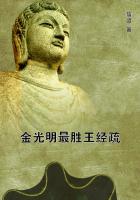THE ARMY OF THE NORTH.
I trust that it may not be thought that in this chapter I am going to take upon myself the duties of a military critic. I am well aware that I have no capacity for such a task, and that my opinion on such matters would be worth nothing. But it is impossible to write of the American States as they were when I visited them, and to leave that subject of the American army untouched. It was all but impossible to remain for some months in the Northern States without visiting the army. It was impossible to join in any conversation in the States without talking about the army. It was impossible to make inquiry as to the present and future condition of the people without basing such inquiries more or less upon the doings of the army. If a stranger visit Manchester with the object of seeing what sort of place Manchester is, he must visit the cotton mills and printing establishments, though he may have no taste for cotton and no knowledge on the subject of calicoes. Under pressure of this kind I have gone about from one army to another, looking at the drilling of regiments, of the manoeuvres of cavalry, at the practice of artillery, and at the inner life of the camps. I do not feel that I am in any degree more fitted to take the command of a campaign than I was before I began, or even more fitted to say who can and who cannot do so. But I have obtained on my own mind's eye a tolerably clear impression of the outward appearance of the Northern army; I have endeavored to learn something of the manner in which it was brought together, and of its cost as it now stands; and I have learned--as any man in the States may learn, without much trouble or personal investigation--how terrible has been the peculation of the contractors and officers by whom that army has been supplied. Of these things, writing of the States at this moment, I must say something. In what I shall say as to that matter of peculation, I trust that I may be believed to have spoken without personal ill feeling or individual malice.
While I was traveling in the States of New England and in the Northwest, I came across various camps at which young regiments were being drilled and new regiments were being formed. These lay in our way as we made our journeys, and, therefore, we visited them; but they were not objects of any very great interest. The men had not acquired even any pretense of soldier-like bearing. The officers for the most part had only just been selected, having hardly as yet left their civil occupations, and anything like criticism was disarmed by the very nature of the movement which had called the men together. I then thought, as I still think, that the men themselves were actuated by proper motives, and often by very high motives, in joining the regiments. No doubt they looked to the pay offered. It is not often that men are able to devote themselves to patriotism without any reference to their personal circumstances. A man has got before him the necessity of earning his bread, and very frequently the necessity of earning the bread of others besides himself. This comes before him not only as his first duty, but as the very law of his existence. His wages are his life, and when he proposes to himself to serve his country, that subject of payment comes uppermost as it does when he proposes to serve any other master. But the wages given, though very high in comparison with those of any other army, have not been of a nature to draw together from their distant homes, at so short a notice, so vast a cloud of men, had no other influence been at work. As far as I can learn, the average rate of wages in the country since the war began has been about 65 cents a day over and beyond the workman's diet. Ifeel convinced that I am putting this somewhat too low, taking the average of all the markets from which the labor has been withdrawn.
In large cities labor has been much higher than this, and a considerable proportion of the army has been taken from large cities. But, taking 65 cents a day as the average, labor has been worth about 17 dollars a month over and above the laborer's diet.
In the army the soldier receives 13 dollars a month, and also receives his diet and clothes; in addition to this, in many States, 6 dollars a month have been paid by the State to the wives and families of those soldiers who have left wives and families in the States behind them. Thus for the married men the wages given by the army have been 2 dollars a month, or less than 5l. a year, more than his earnings at home, and for the unmarried man they have been 4dollars a month, or less than 10l. a year, below his earnings at home. But the army also gives clothing to the extent of 3 dollars a month. This would place the unmarried soldier, in a pecuniary point of view, worse off by one dollar a month, or 2l. l0s. a year, than he would have been at home; and would give the married man 5 dollars a month, or 12l. a year, more than his ordinary wages, for absenting himself from his family. I cannot think, therefore, that the pecuniary attractions have been very great.
Our soldiers in England enlist at wages which are about one-half that paid in the ordinary labor market to the class from whence they come. But labor in England is uncertain, whereas in the States it is certain. In England the soldier with his shilling gets better food than the laborer with his two shillings; and the Englishman has no objection to the rigidity of that discipline which is so distasteful to an American. Moreover, who in England ever dreamed of raising 600,000 new troops in six months, out of a population of thirty million? But this has been done in the Northern States out of a population of eighteen million. If England were invaded, Englishmen would come forward in the same way, actuated, as Ibelieve, by the same high motives. My object here is simply to show that the American soldiers have not been drawn together by the prospect of high wages, as has been often said since the war began.












